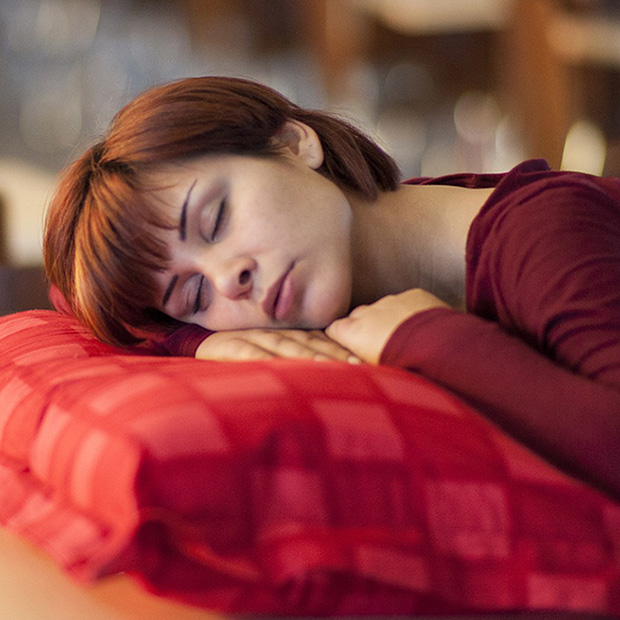Sleep And Eye Health

When we don’t get a good night’s sleep, we can really feel it in the morning.
That grogginess, difficulty concentrating, and slowed reaction time — we all know the feeling. Lack of sleep, especially when it happens on a regular basis, can have many negative effects on our health, both short-term and long-term, including a weakened immune system, weight gain, high blood pressure, mood changes, and memory issues. It also affects the health of our eyes.
Sleep-Deprived Eyes Are Unhealthy Eyes
Our eyes need at least five hours of sleep per night to replenish themselves and function well during the day. Go too long without enough sleep, and you might start getting twitchy eyelids, eye strain, and even dry eye. We have enough to deal with in our busy lives without having to worry about these kinds of eye problems, so the best thing to do is to get enough sleep. Luckily, our eyes can help with that.
Lose The Blue Light Before Bed
One of the major signals to our brains that it’s time to be awake is blue light. In nature, these high-intensity light rays only come from the sun, but these days they also come from fluorescent lights and the screens of our digital devices. When that happens around bedtime, it makes it much harder for our brains to go to sleep, costing us a significant chunk of rest. What’s more, using these bright screens in dark rooms before bed leaves us even more vulnerable to eye strain.
A good policy to minimize the negative effects of blue light on your sleep and eye health is to turn off any screens and fluorescent lights a full hour before bed. If you absolutely need to be on your digital devices right up until bedtime, most devices these days have a Night Shift setting that reduces the blue light emitted by the screen. This will make it much easier on your tired eyes!
Rest Your Eyes; Take Your Contacts Out At Night
Wearing your contacts at night won’t affect your overall health, and it might not affect your quality of sleep, but it will make it harder for your eyes to replenish themselves. The surface of our eyes get oxygen directly from the air, and contact lenses block air from getting to them, especially when our eyes are closed for long hours of sleep.
Newer contact lenses allow much more oxygen to reach the cornea, but we still recommend removing them on a nightly basis. Not only will this allow your eyes to breathe more freely, it will also reduce your risk of eye infections from bacteria on the contact lenses. No matter what, never wear contacts longer than the instructions recommend.
Make Eye Appointments A Priority
Of course, one more great thing you can do for your eye health is to schedule regular eye appointments! Even if you have no sleep deprivation problems and you always take your contacts out before bed, it’s still important to come see us so we can make sure your eyes are healthy and functioning the way they should.